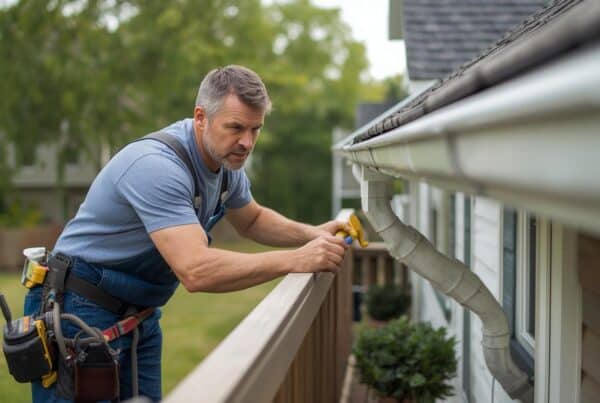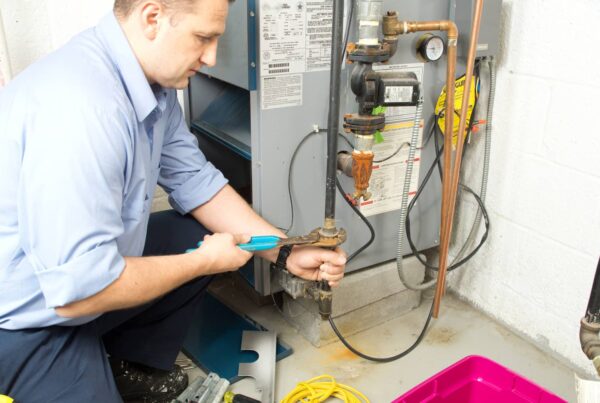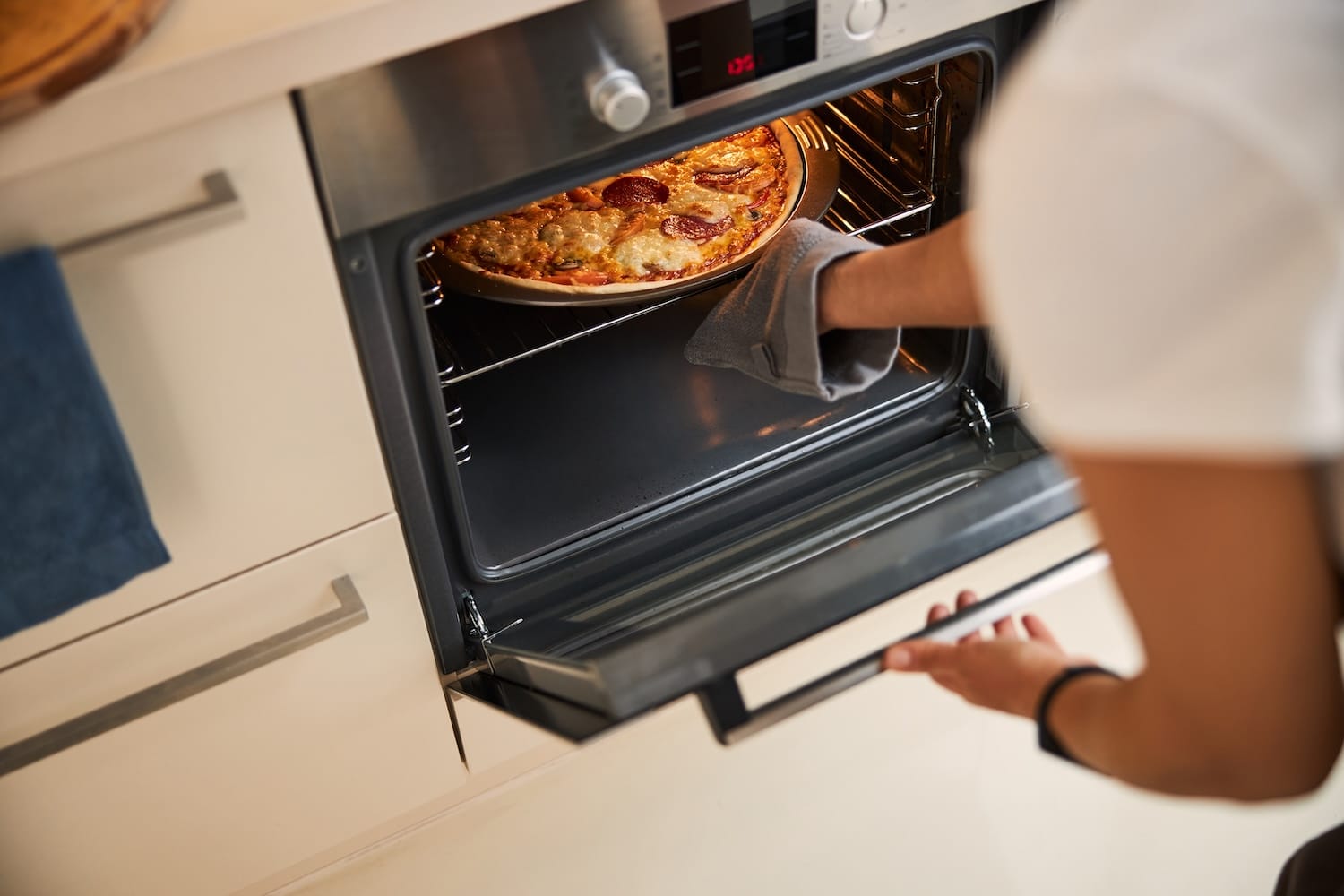
When was the last time you really looked at the inside of your oven? If you’re like most homeowners, it might have been a while. Between busy schedules and everything else on your to-do list, tasks like making sure to clean the oven easily fall to the bottom.
But whether you’re moving into a new place, getting ready to sell, or just want a safer, cleaner kitchen, your routine needs these simple, effective steps.
The Hidden Dangers of a Dirty Oven
Sure, leftover crumbs and grease splatters might not seem like a big deal, but they can cause more trouble than you think.
For starters, grease and food buildup are common causes of kitchen fires. In fact, cooking equipment is involved in more than 50% of all home fires.
Grease left inside an oven can catch fire during high heat, turning a simple dinner into an emergency. A dirty oven can also affect your indoor air quality. Smoke, lingering odors, and even mold from old food spills can spread through your kitchen.
On top of that, grime forces your oven to work harder, which means it might heat unevenly or break down sooner than it should.
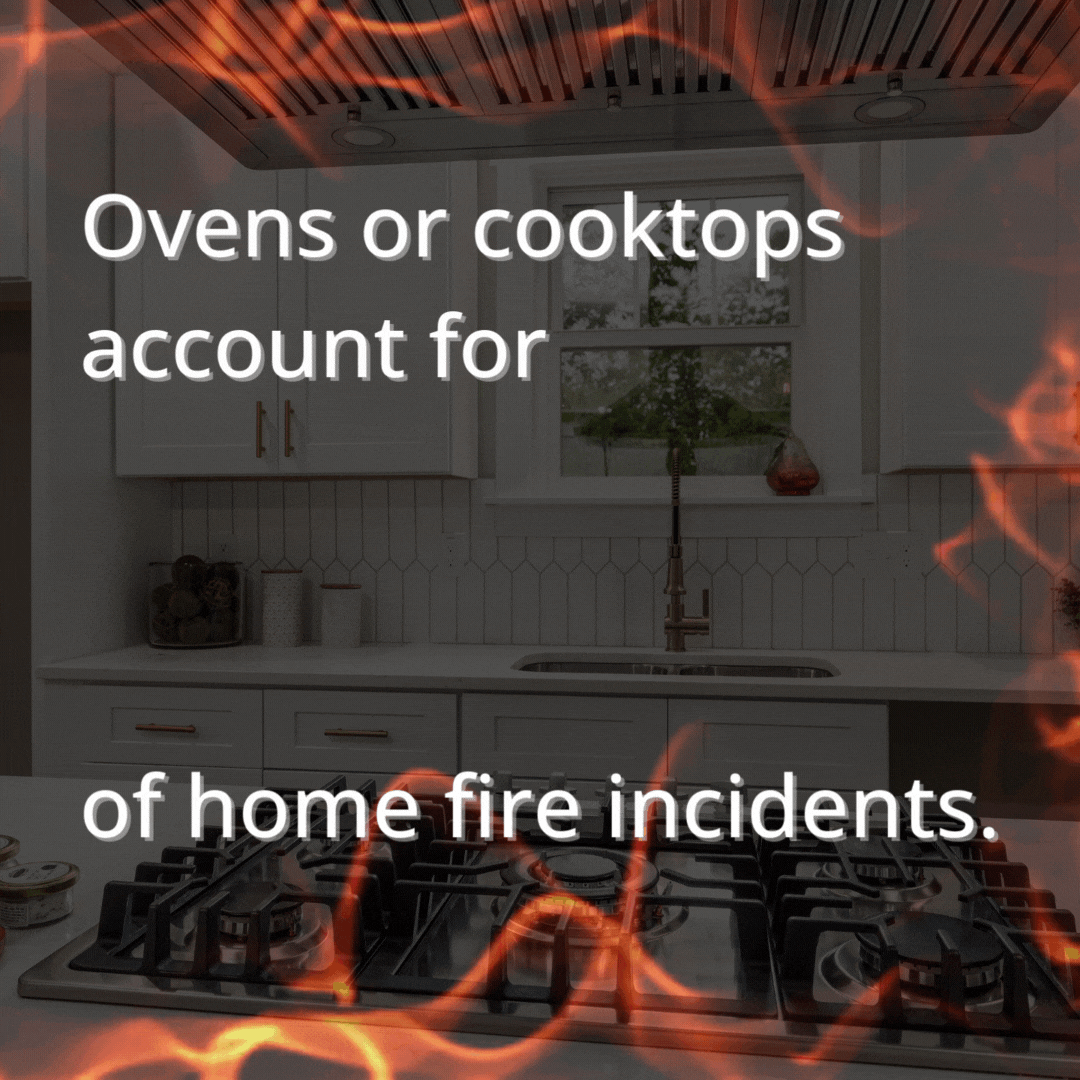
Why a Clean Oven Matters (for More Than Just Cooking)
Keeping your oven clean isn’t just about making meals. It plays a role in your home’s safety, maintenance, and even its value.
During a Home Inspection
Home inspectors typically check that appliances like ovens work properly. But if an oven is caked with grease or has visible damage from buildup, it can raise concerns.
While cosmetic issues might not make it into a report, functional problems like broken seals or faulty heating elements will. And if the oven looks neglected, buyers might wonder what else in the home hasn’t been maintained.
In Real Estate Transactions
Whether you’re selling or buying, the state of the oven can leave an impression. A spotless oven helps your kitchen feel move-in ready.
On the other hand, a grimy one might make buyers question the overall care of the home. Clean appliances can even influence final sale prices or negotiation points.
For Everyday Homeownership
Beyond inspections and sales, a clean oven helps prevent smoke, odors, pests (like ants or roaches), and fire hazards. It also keeps your appliance running efficiently, saving you from costly repairs or replacements.
How to Clean Any Oven Safely and Effectively
Cleaning your oven doesn’t have to be complicated. Here’s a simple method to get the job done right.
Supplies You’ll Need:
- Baking soda
- Vinegar
- Water
- Spray bottle
- Gloves
- Sponge or cloth
- Optional: commercial oven cleaner
The Natural Cleaning Method:
- Make a paste: Mix 1/2 cup of baking soda with a few tablespoons of water until it forms a spreadable paste.
- Apply the paste: Spread the paste all over the inside of the oven, avoiding heating elements. Let it sit overnight (or at least 12 hours).
- Wipe it down: Use a damp cloth or sponge to wipe away the paste and loosened grime.
- Spray vinegar: Spray vinegar over any remaining baking soda residue. The fizzing helps lift off the last bits. Wipe clean.
For Self-Cleaning Ovens:
- Follow the manufacturer’s instructions for running the self-clean cycle.
- Make sure your kitchen is well-ventilated, as the process can produce smoke and odors.
- Avoid using oven liners during the self-clean cycle, as they can melt or damage the oven.
Commercial Oven Cleaners:
If you prefer a store-bought cleaner, always wear gloves and follow the safety instructions.
Avoid mixing chemical cleaners with natural solutions like vinegar, which can cause harmful reactions.
Cost breakdown:
- DIY cleaning supplies: $5–$10
- Commercial oven cleaner: $10–$20
- Professional oven cleaning service: $100 or more
How Often Should You Clean Your Oven?
For most homes, a good rule of thumb is to clean your oven every 3 to 6 months, depending on how often you cook. If you’re a frequent baker or deal with spills, you might need to clean it more often.
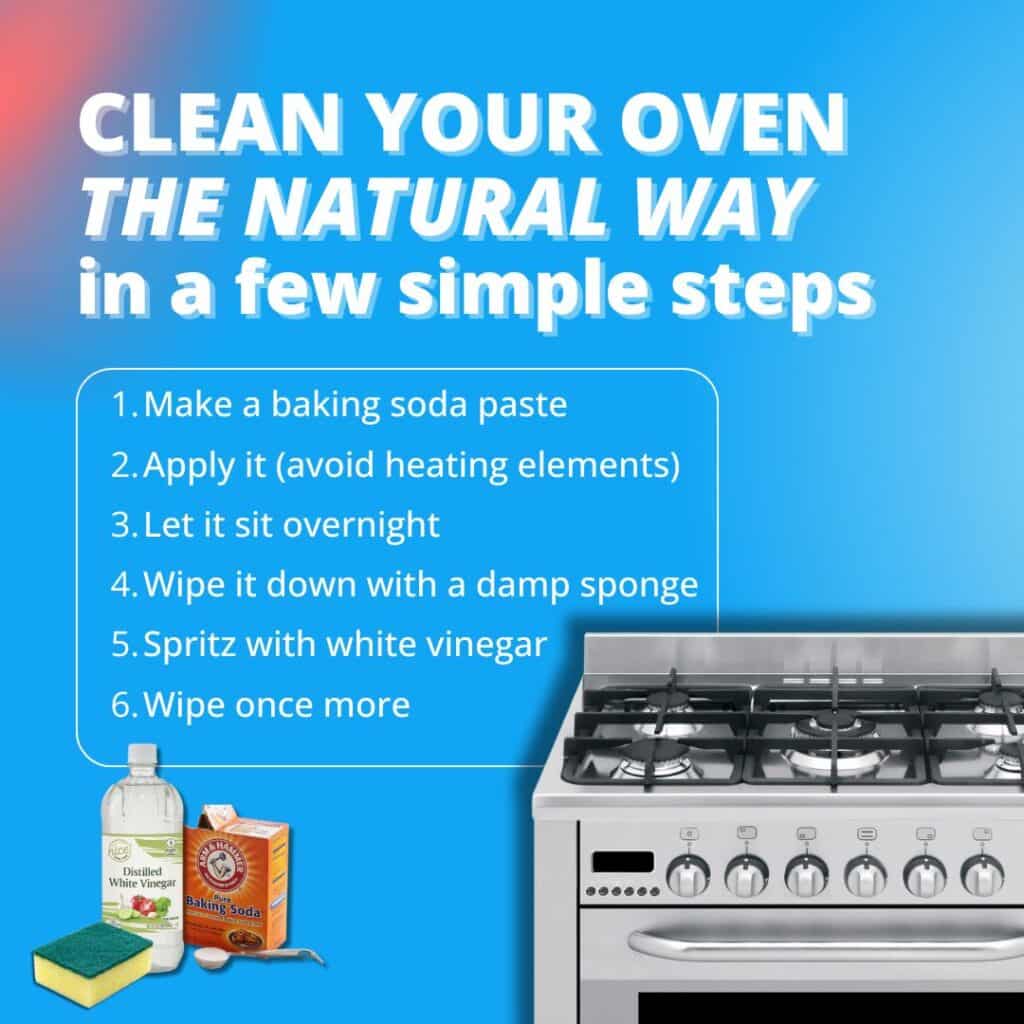
Pro tip: Wipe up small messes right after cooking to keep grime from building up. That way, you won’t need to deep-clean as often.
Kitchen Safety Tips and Maintenance
Oven cleaning is just one part of keeping your kitchen safe and functional. Here are some other easy maintenance tips to protect your home.
- Use oven liners (only if recommended for your oven type) to catch spills and make cleaning easier.
- Cover dishes while cooking to reduce splatters.
- Run the vent hood while using your oven or stove to improve air quality and prevent grease buildup.
- Clean range hood filters regularly to remove grease and ensure proper airflow.
- Inspect stove burners and heating elements for wear or residue.
- Test your kitchen smoke detectors monthly. According to the NFPA, 3 out of 5 home fire deaths happen in homes without working smoke alarms.
When to Call a Professional
Sometimes, oven grime goes beyond DIY. Call in a professional if:
- The oven has broken seals, wiring issues, or faulty heating elements.
- There’s excessive buildup that a simple cleaning won’t fix.
- You’re selling or moving into a home and want everything checked, including the appliances.
A professional home inspection, like those offered by All Coast Home Inspections, ensures that your kitchen (and the rest of the home) is safe, functional, and ready for anything.
Conclusion
Cleaning your oven isn’t just another chore. It helps protect your home from fire hazards, keeps your kitchen smelling fresh, improves appliance performance, and can even boost your home’s value during a sale.
Make oven cleaning a regular part of your home care routine. And when you need a deeper look at your home’s systems and safety, schedule a professional inspection with All Coast. We’re here to help make sure your home is as safe and comfortable as it should be.

